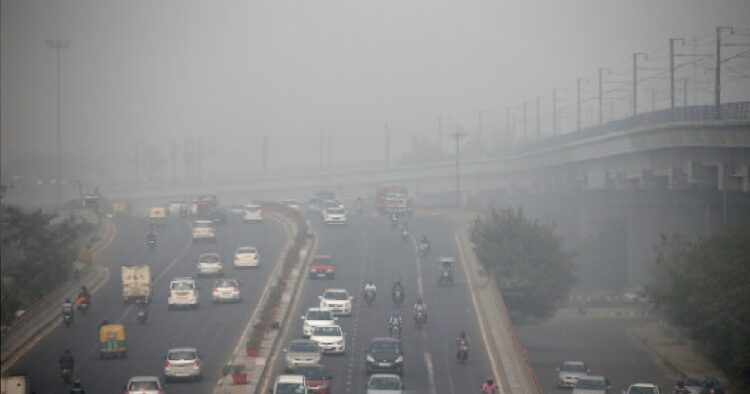In a chilly turn of events, northern Bharat, including the national capital, Delhi, woke up to a thick layer of fog on Wednesday, intensifying the ongoing cold wave. The dense fog led to low visibility, creating travel disruptions and delays for commuters. With temperatures plummeting to around seven degrees, the Indian meteorological department issued a warning of ‘dense to very dense’ fog in Delhi and Uttar Pradesh from 27th to 29th December.
Traffic Snarls and Flight Delays
The hazy morning resulted in traffic snarls across the city, affecting commuters. Visibility recorded at 5:30 AM showed extremely low figures in various locations, such as Amritsar, Patiala, Srinagar, and more. The situation also impacted train schedules, with delays reported for trains arriving and departing from New Delhi due to the fog and reduced visibility.
Airport Operations Hit Hard
The dense fog wreaked havoc on air travel, causing delays and disruptions at Delhi’s Indira Gandhi International Airport. According to the Flight Information Display System (FIDS), approximately 110 flights, including both domestic and international, were affected. The Delhi Airport Authority issued an advisory, stating that flights not compliant with CAT III standards might face disruptions. CAT III is an Instrument Landing System crucial for safe landings in low-visibility conditions like fog, snow, and rain.
Health Advisory Amidst Fog Concerns
Apart from travel chaos, the Indian Meteorological Department also issued a health warning regarding the dense fog. The release stated that dense fog contains particulate matter and pollutants that, when exposed, may lodge in the lungs. This can lead to decreased lung function, causing issues like wheezing, coughing, and shortness of breath. The advisory urged residents to take necessary precautions amidst the foggy conditions.
In summary, as the cold wave maintains its grip, Delhi and neighboring regions find themselves grappling with dense fog, impacting various aspects of daily life from commuting to air travel and raising health concerns.

















Comments